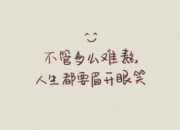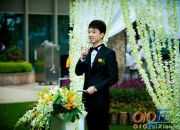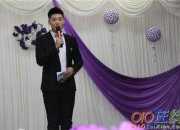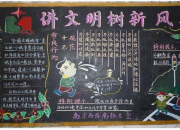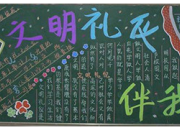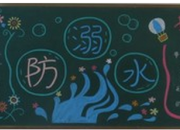英语revision语句的教学指导(4)
时间:2021-08-31Lesson 46 教学设计示例
Period: The Second Period
Content: Lesson 46
Properties: Recorder; Overhead Projector; Pictures.
Teaching Objectives:
1. Understand the text.
2. Revise different verb tenses.
Language Focus:
1. The useful expressions: so far, with one’s help, thanks to.
2. The Present Perfect Tense.
Teaching Procedures:
I. Showing the teaching aims
II. Revision
Revise the dialogue in Lesson 45.
III. Leading in
Show some pictures that introduce the sun, the moon, the earth, space, spaceship, satellite, universe, etc.
Ask the students to look at the pictures and say: Look, this is a satellite. Today we are going to read about it. The title of the passage is “The Universe and Man - made satellite”. Watch the video about satellite and speak out what a satellite is.
After watching, let the students discuss the questions for a while. Get them to give the explanations in English.
For instance: A satellite goes round the earth. The moon is a satellite of the earth. There are many man-made satellites in the space too. Then explain that man-made is an adjective meaning made by people. “Man” in this text means “the human race”.
IV. Reading
Get the students to look at the questions below:
What do we mean when we talk about the universe?
Why can’t many stars be seen?
How far is the moon away from the earth?
Has the moon been visited by man already?
Have any man-made machines travelled farther than the moon? What are they?
What do you know about the universe?
Why do we say the world itself is becoming smaller and smaller?
Read the passage carefully and discuss the answers in pairs. Finally check the answers with the whole class.
Give the students some more background information about spaceships without people: Some spaceships have been sent to visit different planets, such as Mars, Venus and Jupiter.
Ask the students to write down the answers in the exercise books. The suggested answer to the last question is: With the help of the man-made satellites, it is easy for different countries to send and receive messages. We can also use satellites to help us make telephone calls to foreign countries.
V. Practice
Play Speech Cassette or video for the students to listen or watch. For the second time, let the students repeat after it, at last, the students can read the pass
age at the same time while playing the sounds.
Give the students some free time to practice reading aloud. Then ask some of them to read in class. Check their reading. Explain:
so far: We have learned 2000 words so far.
With one’s help: With the teachers help, he caught up with the other students.
Knowledge: Our knowledge of the USA is not so good.
Thanks to: Thanks to Tom’s help, we finished the work on time.
VI. Do Exercise below:
The universe means the earth, the sun, the moon and the stars, and the space ______ them. Many of the stars are so ______ away that we ______ see them.
The moon, our ______, travelled ______ the earth. It has been visited _____ man in spaceships.
Man-made ______ have been sent up ______ space by many countries. They go ______ the earth. They are used for helping us to learn more ______ the earth, the weather and other things. They are also used for sending and ______ messages. It makes people ______ different countries understand each other better. So people say the world itself is becoming a much ______ place. People call the small place “the global village”.
The answers: between, far, can not, satellite, round, by, satellites, into, round, about, receiving, from, smaller
VII. Consolidation
Read the passage again, ask the students to find sentences what replace those in text.
1) Text —Many of the stars cannot be seen because they are too far away.
Exercise —Many of the stars are so far away that we cannot see them.
2) Text —The moon travels round the earth. It is our satellite.Exercise —The moon, our satellite, travels round the earth.
VIII. Homework
1.Fill in the blanks。
Man-made s ________ have been s ________ up into space by many countries. They can be used for sending and r ________ messages. For example, w ________ their help, China can send its TV and radio p ________ to the other side of the w ________. We can also use them to help us m ________ telephone, calls to f ________ countries. T ________ to them, the world itself is becoming a much s ________ place and people from different countries. Now u ________ each other better.
2. Let the students retell the text.
3. Make six sentences using the Present Perfect Tense.
Lesson 47 教学设计示例
Period: The Third Period
Content: Lesson 47
Properties: Recorder; Overhead Projector.
Teaching Objectives: Revise the distance and dialogues.
Language Focus: the modal verbs, numbers.
Teaching Procedures:
I. Showing the teaching aims
II. Revision
Revise the text and ask some students to read their retellings in class. Then practise the Present -Perfect Tense.
III. Leading in
Get the students to look at the Exercise
1 ) How many kilometres by train is it from… to…?
2) How far away is…from…?
3) What about …?
Tell the students to read the model question. Let them understand this exercise, then get the students to ask and answer in pairs. Finally check the answers with the whole class.
IV. Practice
Part 2. Let the students look at the diagram, It tells us the distance between cities. Let’s look at the model first.
A: How many kilometres by train is it from Nanjing to Wuhan?
B: 1229. ( One thousand two hundred and twenty nine)
A: How many kilometres is it from Kunming to Shanghai?
B: 2677. How many....?
Ask the whole class some questions about the distance. Make sure the students can say numbers correctly. Then divide them into small groups to make up questions. At last, report their work in class.
V. Acting
Let the students read Part 3 silently. Ask them to practise in pairs. Pay attention to the modal verbs.
VI. Workbook
For Exercise 1, ask and answer in pairs.
For Exercise 3. Get the students to read over the sentences and fill in the blanks.
The answers are: was ...repaired, began, make, was told, got, decided, received, found, would be repaired
Exercises in class
Change the following sentences into Passive Voice
1. Bruce writes a letter to his parents every week.
2.Lilei mended the broken kite this morning.
3.1 must buy a Christmas present for Mr Green.
4. Li Ming cant finish the homework on time.
5. We should water the flowers twice a day.
VI. Homework
Finish off the exercises in the workbook.
Lesson 48 教学设计示例
Period: The Fourth Period
Content: Lesson 48
Properties: Recorder; Overhead Projector.
Teaching Objectives:
1. Learn how to build words.
2. Practise listening.
Language Focus:
1. Word formation
2. the Passive Voice
Teaching Procedures:
I. Showing the teaching aims
II. Revision
Go through some pairs to act out their dialogues written in the exercise books.
III. Listen
Ask the students to read through the questions of Exercise I in the workbook, ask them to guess the answers before listening. Then listen carefully, check the answers with each other. Listen again and repeat. Answers: 1.B 2.A 3.B 4.C 5.B 6.C 7.C
IV. Word building
Explain that in English, we can make new words by combining two words together for example:
Class + room = classroom, home + work = homework, police + man = policeman
Let the students think of other examples they have learnt. Then look at Exercise 2 in the wordbook, read through the list. Make sure the students can understand the meaning of the words. Pay attention, in American English “woolen” and “traveler” are spelt as “woolen” and “traveled”
V. Practice
Part 2. Divide the students into two groups to practise. Point out that “Which do you think is more interesting? = Which programme (of the two) is more interesting?” And the use of shall to express a decision in I think I shall read a book instead. Get the students to practise all the dialogues. Make up as many as they can. Then act it out in class.
VI. Acting
Let the students read proverbs Exercise 4. Make the students understand the Chinese meaning. Ask them to practise them after class.
VII. Practice
Get the students to look at the Exercise 5 in the workbook and have a discussion.
Ask: What activities do you do every day? What activities do you like most? What activities do you like least? Then ask the students to practise in pairs.
VIII. Writing
Ask the students to look at the pictures, let them really understand the meaning of each picture. Collect some ideas and information. Share with the students. Then try to make up a short story and write it down.
After finishing writing, ask the students to check their partners work, then ask them to hand in their writings for marking.
IX. Workbook
Do Exercise 3, ask the students to find compound words.
For Exercise 6, do it with the whole class. The answers are:
1. put up 2. put. . . away 3. put on 4. put. . . down
5. Put up 6. Put. . . on 7. put down
Exercises in class
Rewrite the following sentences in another way.
1.I dont like watching TV, she doesn’t like it, either.
________ I ________ she _________ watching TV.
2. We should deal with the problem more carefully.
The problem ________ ________ ________ with more carefully _______ ________.
3. The buses were made in the factory.
They ________ the buses in the factory.
4. Talking in class is wrong.
It _________ right _________ _________in class.
Answers: 1. Neither…nor, likes 2. should be dealed, by us 3. made 4. isn’t, to talk
X. Homework
1. Prepare for the exam.
2. Finish off the exercises in the workbook.
探究活动
读文谈感受
读下面关于时间的小资料,然后谈一谈自己的感受。
A punctual(守时的) person is in the habit of doing a thing at the proper time and is never late in keeping an appointment.
The unpunctual man, on the other hand, never does what he has to do at the proper time. He is always in a hurry and in the end loses both time and his good name. There is a proverb(
谚语) which says, Time flies never to be recalled(召回). This is very true. A lost thing may be found again, but lost time can never be regained. Time is more valuable than material things. In fact time is life itself, and the unpunctual man is for ever wasting and mismanaging his most valuable asset(财产) as well as others. The unpunctual man is always complaining that he finds no time to answer letters, or return calls or keep appointments promptly. But the man who really has a great deal to do is very careful of his time and seldom complains of want of it. He knows that he can not get through his immense amount of work unless he faithfully keeps every appointment promptly and deals with every piece of work when it has to be attended to.

